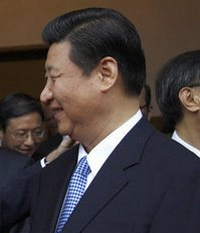BEIJING -- At its recent plenary session in Beijing on Oct. 14-18, the Chinese Communist Party's Central Committee rubber-stamped the country's latest five-year economic plan, oversaw the further emergence of a new generation of political leaders and issued a number of significant policy announcements. Taken together, these events signal a changing political tide in Beijing and the ascendancy of the CCP's Maoist-influenced "Princeling" faction in the run-up to the 2012 leadership transition.
The Princeling faction is so named because many of its key figures are the sons of revolutionary heroes. The Princelings effectively represent the CCP's traditionalist wing, littering their speeches with quotations from Chairman Mao Zedong and emphasizing the "core objectives" of the party and the revolution. Their rise has been fuelled by growing concerns over social unrest and economic sustainability, and raises the question of whether, under their leadership, China will increasingly turn to Maoist ideology to moderate these threats and secure its economic survival.
Since Deng Xiaoping's death in 1997, both of China's subsequent leaders, Jiang Zemin and Hu Jintao, have come from what were perceived as more progressive factions. Their tenures in power, however, have been characterized by rapidly rising social inequality and a failure to both stamp out corruption and adequately control the market economy's destructive effects on human and environmental resources.

